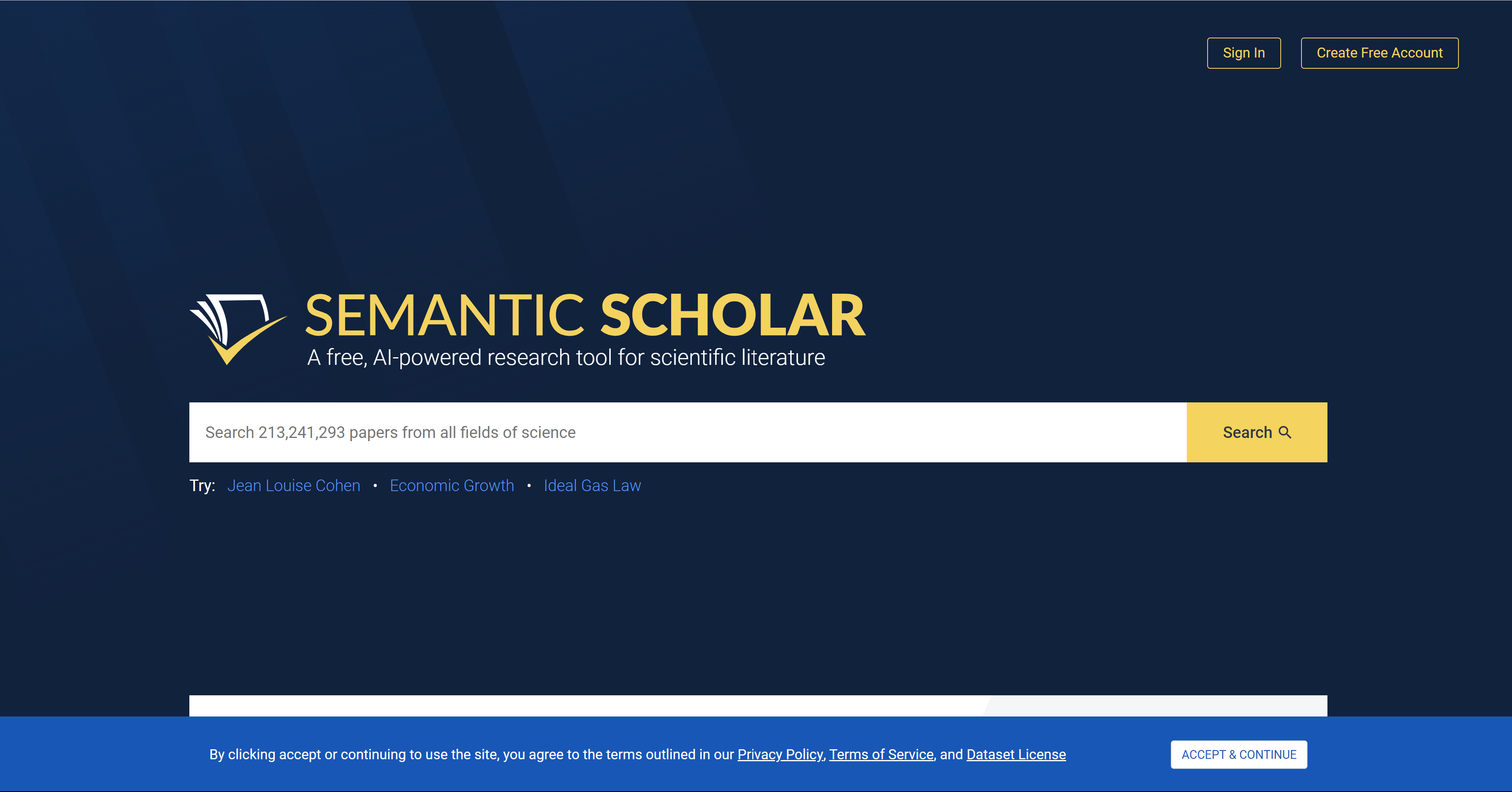The dawn of artificial intelligence (AI) has revolutionized numerous fields, and academic research is no exception. With AI tools becoming increasingly sophisticated, they have become invaluable companions for researchers, offering assistance that ranges from finding relevant literature to analyzing complex data sets.
But how does one navigate this sea of AI tools? And what do the best AI research tools mean for the future of academic research? Let’s dive in!
Short Summary
- AI tools are revolutionizing academic research by automating tasks, providing insights, and enhancing accuracy.
- Selecting the right AI tool for your needs requires accurately identifying problems and consulting an expert.
- Case studies demonstrate successful outcomes of using AI in academic research, such as improved exam scores and efficient data analysis.
Top AI-Powered Tools for Academic Research

In 2023, the world of academic research is brimming with AI tools designed to assist researchers in various ways. Whether it is writing a literature review, finding relevant papers, or even providing step-by-step guides to writing a PhD thesis, AI tools have come to the rescue of researchers in their quest for research articles.
Among the plethora of AI tools available, let’s explore five of the top contenders that are making waves in academic research by providing relevant articles.
Semantic Scholar

Semantic Scholar, an AI-powered search and discovery platform, is a boon for researchers navigating the vast ocean of academic publications. This tool uses machine learning to analyze data and provide more relevant search results.
Its prowess lies in uncovering concealed connections and associations between research topics and suggesting similar papers based on the research already saved.
In essence, the Semantic Scholar is like a researcher’s personal assistant, generating single-sentence summaries of each paper to facilitate the selection of which academic papers to read thoroughly.
AI Research Assistant
The AI Research Assistant is another powerful asset for researchers. It is an AI-powered research tool designed to generate ideas, locate relevant information, and structure arguments for researchers.
This assistant is not just a passive tool; it’s an active participant in the research process. It can aid researchers in ideation and research formulation and even help in creating an outline for a journal article, potentially streamlining the research process.
The AI Research Assistant can be used to quickly generate ideas, locate relevant articles, and structure the gathered relevant information for your convenience.
Data Analysis Tools

The realm of data analysis has seen a significant transformation with the arrival of AI-powered data analysis tools. These tools, such as Microsoft Excel, Python, R, Jupyter Notebook, Apache Spark, SAS, Microsoft Power BI, and Tableau, have made the analysis and interpretation of complex data sets a breeze for researchers.
These tools not only provide researchers with a more efficient way of dealing with data, but they also open doors to new insights and discoveries through scientific articles.
Technical and Scientific Writing Assistance
Writing is an integral part of academic research, and AI tools have stepped in to assist researchers in improving their academic writing and communication skills. Tools like Trinka and Research Rabbit have been designed to enhance the quality of scholarly and technical writing by detecting errors that other grammar checkers overlook.
These tools can suggest modifications to make academic articles and research papers meet style guides like APA or AMA, ensuring the final product is not just accurate but also well-presented, making it easier to submit scientific articles.
AI-Powered Collaboration Platforms
Collaboration is key in academic research, and AI has stepped in to make this easier as well. AI-Powered Collaboration Platforms like ChatGPT and SciSpace enable researchers to share ideas, get feedback, and even obtain reliable information.
These platforms are designed to facilitate collaboration among researchers, allowing them to exchange ideas and receive feedback through the use of AI technology. This not only enhances the quality of research but also fosters a dynamic and interactive research environment.
The Impact of AI on Academic Research
The impact of AI on academic research is profound and far-reaching. AI tools have proven to be an invaluable asset for researchers by automating tasks, analyzing data, and providing insights in ways that were not feasible previously. The use of AI in tools like Assistant by Scite and ChatPDF has not only made the research process more efficient but has also enhanced the precision of research outcomes.
AI tools have enabled researchers to quickly and accurately process large amounts of data and identify patterns.
How to Choose the Right AI Tool for Your Research Needs

With the myriad of AI tools available, choosing the right one for your research needs can be a daunting task. However, by accurately identifying the problems for which AI solutions should be sought, prioritizing concrete value, and starting small, you can ensure that you select the most appropriate AI tools for your tasks.
It’s also advisable to consult an expert when selecting an AI tool to ensure it fulfills your research requirements.
Case Studies: Success Stories of AI in Academic Research

The integration of AI in academic research has resulted in numerous success stories. For instance, a student was able to achieve a 94% score on an exam after just three days of AI-guided study.
The use of AI in creating tailored lesson plans and assessments and AI algorithms efficiently analyzing large amounts of data to detect patterns are other notable instances of AI integration in academic research.
AI has revolutionized the way students learn and enabled them to achieve better results in a shorter time.
Tips for Integrating AI Tools into Your Research Workflow
The integration of AI tools into your research workflow can significantly streamline your research process. To maximize the benefits, it’s essential to start small, allowing you to become acquainted with the AI tools and comprehend how they can enhance your research.
Additionally, ensure the AI tool you choose is suitable for the task and will deliver the desired outcomes. To achieve this, consider using the best AI tools available in the market.
The Future of AI in Academic Research
The future of AI in academic research is filled with potential. As AI tools become more sophisticated, they may contribute to broader areas of scientific research. AI has the potential to revolutionize the manner in which research is conducted, from data collection and analysis to the dissemination of results.
Additionally, artificial intelligence could lead to novel discoveries and insights that would not have been possible without AI.
Summary
The integration of AI into academic research has undeniably transformed the landscape of research methodologies. From finding relevant literature to analyzing complex data sets, AI tools have become an integral part of the research process. As AI tools continue to evolve and become more sophisticated, they hold great promise for the future of academic research.
Frequently Asked Questions
Can you use AI as a research tool?
AI is a powerful research tool that can help researchers save time and make faster progress. Scientists and PhD scholars can benefit from the many AI tools available, making it an excellent choice for research.
What is the best AI to summarize research papers?
Genei, Jasper, and ChatGPT Plus (the GPT-4 model) offer the best AI summarization capabilities, with Genei leading the pack overall.
What is Semantic Scholar?
Semantic Scholar is an AI-powered search engine that provides more relevant academic publication results through its machine-learning capabilities.
It uses natural language processing and machine learning algorithms to understand the context of a query and provide more accurate results. It also has a powerful citation analysis tool that can help researchers find related publications and track the results.
What does an AI Research Assistant do?
An AI Research Assistant helps researchers efficiently generate ideas, access relevant information, and organize their arguments for better results.
It can save time and energy by quickly finding relevant information and organizing it in a way that is easy to understand. It can also help researchers come up with new ideas and arguments that they may not have thought of.
What is the impact of AI on academic research?
AI has significantly improved academic research, increasing efficiency, accuracy, and collaboration among researchers. This has enabled tremendous advancements in the field that would not have been possible without the help of AI.


































